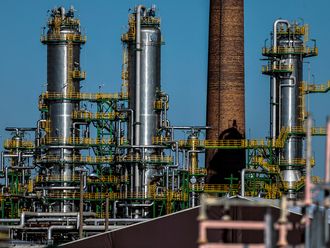Mumbai: It’s time for action in India. With the presidential election out of the way, Prime Minister Manmohan Singh is expected to start rolling out this week policy initiatives needed to reverse a sharp slowdown in growth and rein in high fiscal deficit. The much awaited moves would set the trend for the stock market.
By his glib talking after taking charge of the finance ministry in late June, Singh has raised expectations among the business fraternity and investors. But he faces formidable hurdles, particularly from within his Congress party as well as allies, to the reform proposals that have remained stalled for the past three years.
Equity investors have been cautiously optimistic Singh would brush aside opposition and go ahead with opening up the retail sector, a move that would allow global supermarket giants like Wal-Mart and Carrefour to set up shop. A key factor that would help clinch the decision is the need for large investment in logistics such as warehousing, refrigeration and developing supply chains.
Food inflation running at nearly 11 per cent is a big worry for India and the weak monsoon will pile more upward pressure on prices. Most agriculture commodities follow a boom-and-bust cycle and it is essential for massive improvement in procurement and preservation technologies during bumper output for distribution in the off season.
The entry of global retail titans is expected to help fix this problem.
Singh is also expected to push through measures to boost foreign investment in sectors like aviation, insurance, finance and electricity generation. Capital inflows are critical not only for development but also for the rupee that has been one of the worst performing currencies in emerging markets and has driven up import costs, especially for the country’s single-biggest import – crude oil.
“Now is the moment when our prime minister must break convention, restore government credibility, place the country on a growth path once again by implementing promised reforms,” Ratan Tata, chairman of Tata group of companies, said in a Twitter message.
There is also a need to cut swelling subsidies on items such as fuel – diesel and cooking gas. To do this, Singh would have to show greater resolve and would also need the support of Sonia Gandhi, the power centre of the ruling coalition. Subsidies, including for food, fertilisers and umpteen other things, were the main reason for the fiscal deficit to balloon to 5.9 per cent of GDP in 2011-12.
Standard & Poor’s and Fitch have served notice on New Delhi on a possible downgrade of sovereign rating to junk status if the government does not act quickly to fix the fiscal deficit and remove bottlenecks that have slowed economic growth to 5.3 per cent in the March quarter from 9.2 per cent a year earlier.
“The day of reckoning has come,” said equity trader Kevin D’Souza.
“The ball is in the government’s court. The economy is not doing well, earnings have been bad and we need quick remedial action.”
Foreign investors, who own more than $100 billion worth of Indian shares, are running out of patience. The only reason they have not pulled out in large numbers so far is because of their faith in India’s long-term potential. A nation of more than 1.3 billion people, half of whom are below 25 years of age, should be a boon to any economy if the policymakers can get their act together.
However, policy paralysis that has gripped the government for the past three years, the fallout of a series of corruption scandals that rocked New Delhi, has played truant. Several large projects, including steel factories planned by ArcelorMittal chief L.N. Mittal and South Korea’s Posco, have been held up for years because of delays in government approvals.
It is the same story for power projects despite the massive shortage in electricity in much of the country, and even in the capital New Delhi where blackouts are a frequent occurrence.
Having seen the problems hobbling growth, global investors are turning choosy. Last week, Reliance Communications was forced to pull a planned Singapore initial public offering of its undersea cable subsidiary to raise up to $1 billion because of poor investor response, dealing a blow to its efforts to lighten its heavy debt burden.
The top-30 Sensex fell 0.3 per cent last week to 17,158.44, with Maruti Suzuki among the biggest losers after a riot at one of the car maker’s factory in Haryana left one executive dead, injured several people and damaged the facility. After the market closed on Friday, energy giant Reliance Industries reported a 21 per cent drop in net profit for the three months ended June, its third consecutive drop in quarterly profit.
Earnings will again be closely watched this week, with some of the big ones being ITC, Hindustan Unilever, Wipro, Larsen & Toubro, BHEL, Cairn India, HCL Technologies, GAIL, Colgate and Jindal Steel.
The writer is a journalist based in India












